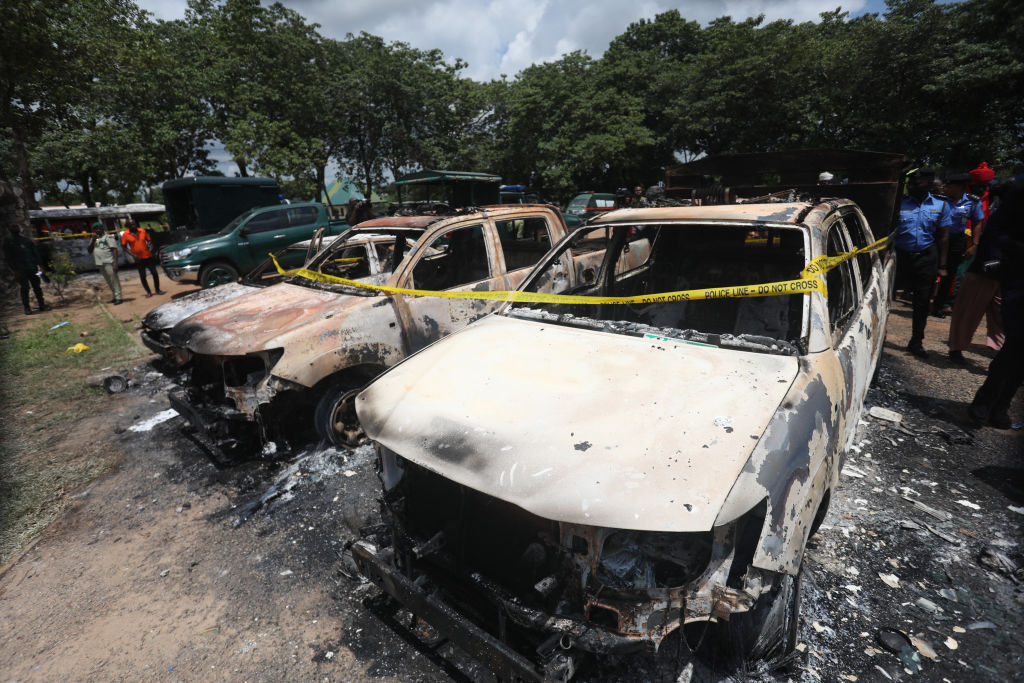ADF STAFF
With thousands of adherents spread across the Sahel and Somalia, al-Qaida and the Islamic State group (IS) have reached an unprecedented threat level in Africa even as they appear to be in steep decline in the Middle East.
That’s the assessment of a new United Nations analysis of the groups and their capacity to sow terror in the countries where they operate. The report is based on data provided by U.N. member states regarding the groups’ membership, leadership and finances.
Overall, the presence of al-Qaida- and IS-related organizations has led to deteriorating security in parts of West Africa and the Sahel, the analysts wrote.
Members of the military have overthrown the governments of Burkina Faso, Mali and Niger in recent years, driven largely by frustration with the elected civilian governments’ inability to rein in Islamic State in the Greater Sahel (ISGS) and al-Qaida-affiliated Jama’at Nusrat al-Islam wal-Muslimin (JNIM).
Until recently, the two groups kept each other in check as they fought over turf. However, that has changed.
“In central Mali and the south-west of Burkina Faso, a localized détente between ISGS and JNIM has raised concerns about the possible establishment of a terrorist sanctuary,” the U.N. analysts wrote.
The ISGS and JNIM have, in essence, divided territory in Burkina Faso and Mali between them, which lets them focus on fighting security forces as they continue to embed themselves in local communities — in some cases by providing security and other services in place of the local government.
In Niger, the story is different. Before the 2023 coup that deposed President Mohamed Bazoum, Niger had been a pillar of counterterrorism efforts across the region. Since the coup, terrorist groups have committed acts of extreme violence against security and civilian targets.
As IS, referred to as Da’esh in the U.N. report, increases its footprint in West Africa, entire communities are swearing allegiance to the group, according to Guillaume Soto-Mayor with the Middle East Institute. In some cases, community members are drawn to extremists’ imposition of Shariah. Others simply can’t go anywhere else and must compromise to survive, Soto-Mayor told The Washington Post.
In communities where it holds sway, IS has backed off attacks and begun opening schools to train more foot soldiers. “There is more organization in terms of indoctrination and recruitment,” Soto-Mayor said. “And there are some types of violence that they now appear reluctant to use.”
Elsewhere in Africa:
- Regional military campaigns against the Allied Democratic Forces in the Democratic Republic of the Congo,including bombing campaigns by the Ugandan military, have cut the group’s numbers by one-quarter to one-third, although some key leaders remain active.
- Extremists face strong counterterrorism actions in Egypt and Morocco while they continue to operate in southern and southwestern Libya.
- In Mozambique, sustained counterterrorism efforts against Ansar al-Sunna killed its leader and reduced the number of extremists in the Cabo Delgado region to 200 or fewer, who are hiding in the Catupa forest.
- In Nigeria, Islamic State West Africa Province is the most active IS group and is capable of projecting itself into countries in the Lake Chad Basin despite its ongoing clash with Boko Haram.
- In Somalia’s Puntland region, the IS presence has been kept in check at 150 combatants or fewer through fighting with al-Qaida-affiliated al-Shabaab.
Across the continent, insecurity continues to fuel extremism, according to the U.N. analysis.
“The evolution of the threat in conflict zones in Africa continue[s] to cause Member States concern, particularly in West Africa and the Sahel, where a deficit in counter-terrorism capabilities has been exploited by Da’esh,” analysts wrote.

